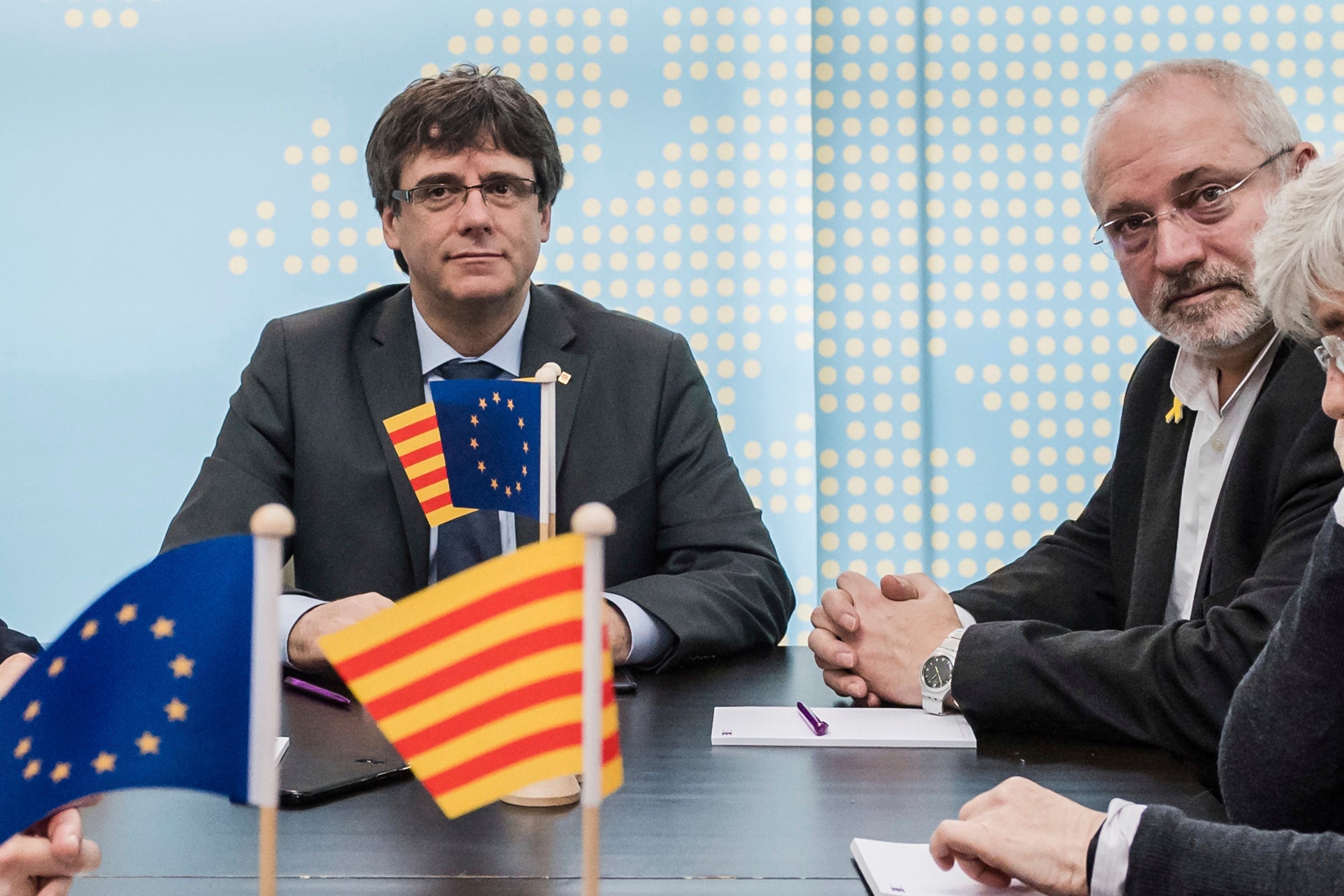Who benefits? Spain, Catalan separatists dispute EU ruling
The European Union's top court has issued a ruling that allows Spain to make another attempt to seek the extradition of a former Catalan separatist politician living in Brussels

Your support helps us to tell the story
From reproductive rights to climate change to Big Tech, The Independent is on the ground when the story is developing. Whether it's investigating the financials of Elon Musk's pro-Trump PAC or producing our latest documentary, 'The A Word', which shines a light on the American women fighting for reproductive rights, we know how important it is to parse out the facts from the messaging.
At such a critical moment in US history, we need reporters on the ground. Your donation allows us to keep sending journalists to speak to both sides of the story.
The Independent is trusted by Americans across the entire political spectrum. And unlike many other quality news outlets, we choose not to lock Americans out of our reporting and analysis with paywalls. We believe quality journalism should be available to everyone, paid for by those who can afford it.
Your support makes all the difference.The European Union’s top court issued a ruling Tuesday that allows Spain to make another attempt to seek the extradition of a former Catalan separatist politician living in Brussels.
But the Court of Justice of the EU introduced several caveats that do little to clarify what is to come next in a legal and diplomatic saga that is five years running and shows no sign of ending anytime soon.
Spain has unsuccessfully tried to get Belgium to hand over former Catalan government member Lluís Puig since he and ex-Catalan regional president Carles Puigdemont fled Barcelona along with other cohorts following their illegal 2017 secession bid for Spain’s Catalonia region.
The Belgian courts justified their repeated refusals by agreeing with Puig that Spain’s Supreme Court, which requested his extradition, lacked jurisdiction — instead arguing that a lower court in Catalonia should take the case — and that he would not get a fair trial.
However, the European court based in Luxembourg, in a ruling made on a request by Spain’s Supreme Court to clarify the situation, said an EU country should only refuse to execute a European Arrest Warrant issued by another member state under “exceptional” circumstances.
That would mean, the court said, that a judge would have to determine that the person to be extradited would be at risk of not receiving a fair trial due to “the systemic or generalized deficiencies in the operation of the judicial system of the issuing Member State" or “deficiencies affecting the judicial protection of an objectively identifiable group of persons to which the person concerned belongs.”
The court also said that Spain could issue a new arrest warrant for Puig.
Where the decision leaves Puig, and the precedent it could set for Puigdemont, is unclear.
Puig celebrated the decision from Brussels, saying “we will continue our fight.”
His lawyer, Gonzalo Boye, who also represents Puigdemont, has repeatedly said that their defense is founded on the claim that Spain’s judiciary is biased against Catalan separatism.
But the spokeswoman for Spain’s government, Isabel Rodríguez, said that the decision backs the position of Spain’s Supreme Court and reduces the options for Puig and Puigdemont.
“This decision appears to mean that it will make it easier for Puigdemont to finally stand before a Spanish court,” she said.
Spain’s government issued pardons in 2021 to the nine leaders of the 2017 bid who did not flee and were later convicted of sedition and misuse of public funds, in an attempt by central authorities to reduce tensions with wealthy northeast Catalonia. Polls and elections in recent years show that Catalans are roughly equally divided over the secession question.
Puigdemont himself is awaiting a ruling on his immunity as an European Parliament member that is expected in the coming months.